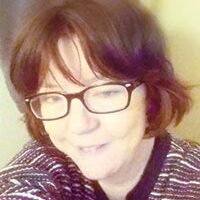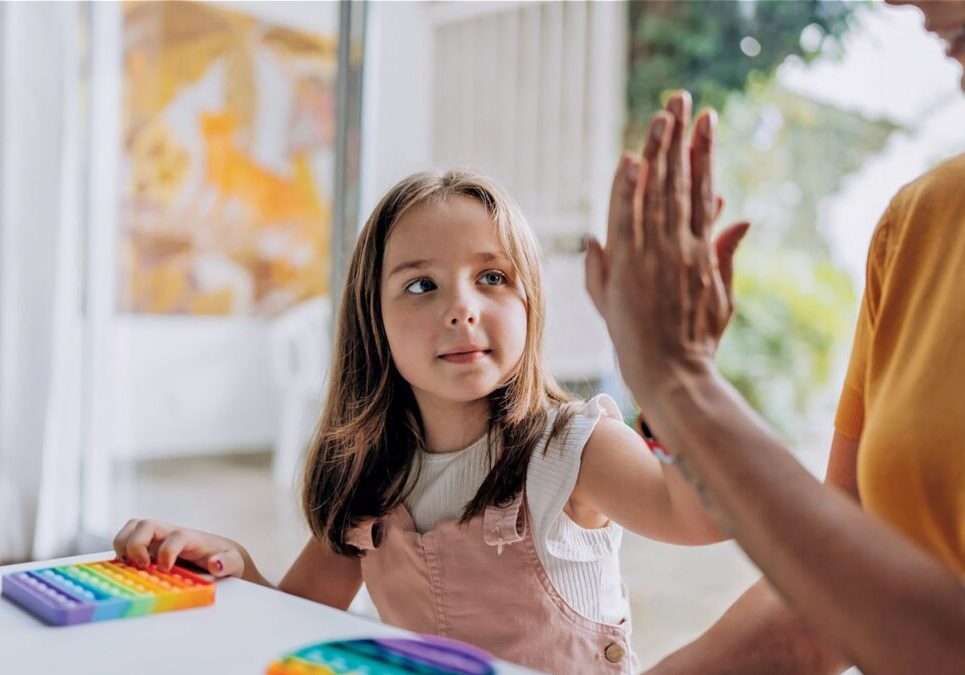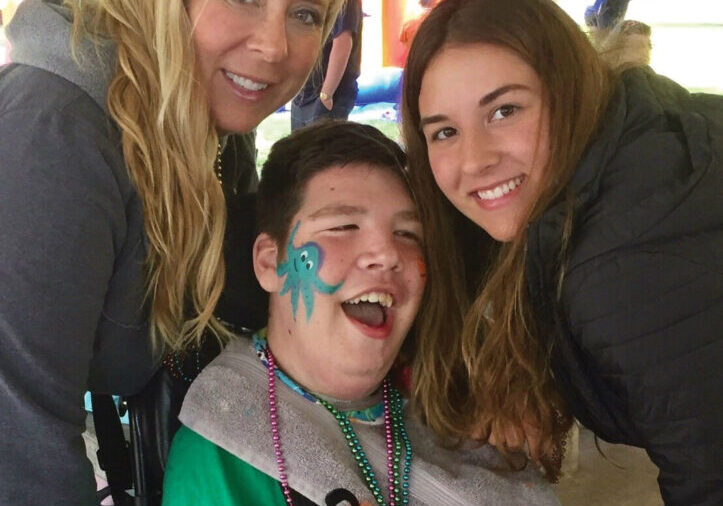March 21 is World Down Syndrome Day, a global awareness day that the United Nations has officially observed since 2012. Each year, about 6,000 babies in the United States are born with Down syndrome, making it the most commonly diagnosed chromosomal condition.
Understanding Down syndrome
Typically, a baby is born with 46 chromosomes, but babies with Down syndrome have an extra copy of the 21st chromosome. A few common physical traits of Down syndrome are low muscle tone, small stature, an upward slant to the eyes, and a single deep crease across the center of the palm. Every person with Down syndrome is unique and may possess varying degrees of these characteristics.
Children and adults with Down syndrome often face many medical and developmental challenges. The most severe complications of Down syndrome include heart defects, blood disorders, and immune system problems. Hearing and vision impairment is also common among individuals with Down Syndrome.
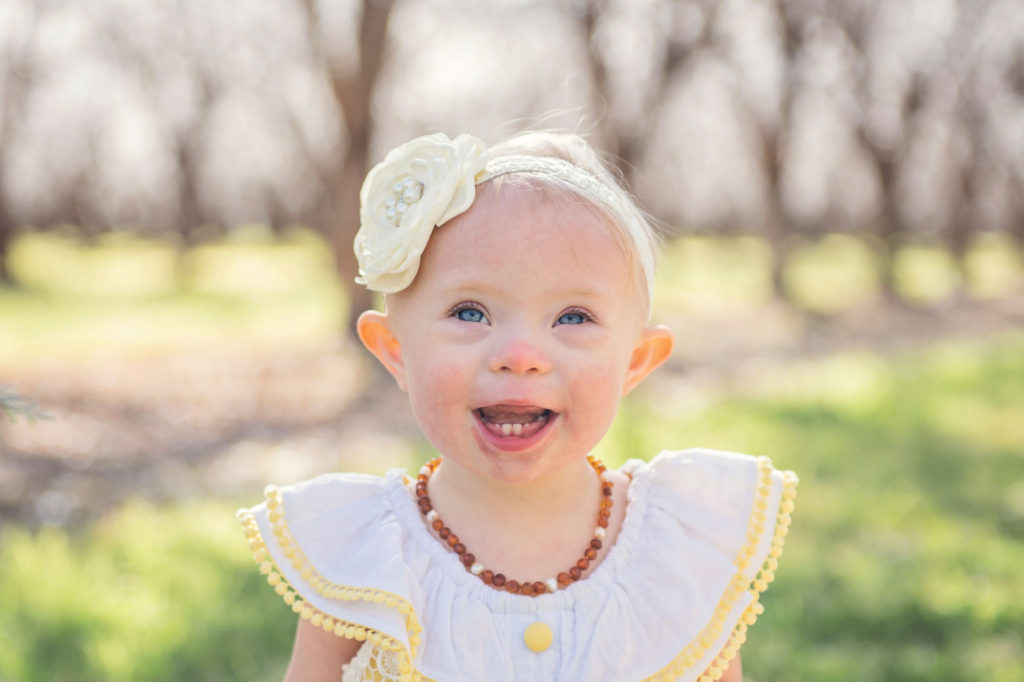
Felicity was born with Down syndrome, and her parents can take advantage of the resources at Chico Down Syndrome Connection. Photo by Amber Thompson.
People with Down syndrome can lead fulfilled, productive lives
Attitudes towards Down syndrome have changed for the better, and despite their challenges, people diagnosed with Down syndrome can lead a fulfilled and productive life, but historically this hasn’t always been the case. Until as recently as the 1960s, most children with Down syndrome were placed in institutions — many soon after birth. It wasn’t until many of those institutions were closed and advocacy organizations established that laws were enacted granting individuals with Down syndrome rights that most of us take for granted.
Chico Down Syndrome Connection empowers families
Our society has come a long way in understanding Down syndrome, but there are still a lot of misconceptions surrounding the condition. Chico Down Syndrome Connection (CDSC) is a support network whose mission is to empower families and enhance public awareness with current, up-to-date information, news, and topics relevant to Down syndrome.
Common misconceptions about Down syndrome
Danielle Bobadilla, activities coordinator for the CDSC, says one of the most common myths she hears is that people with Down syndrome are always happy and smiling, when in reality, “They have feelings just like you and me. They get angry and sad and can be very stubborn at times.”
It’s also a misconception that only older women are at risk of having babies with Down syndrome. Danielle says that she and several other women in CDSC were in their twenties when they gave birth to their children with Down syndrome. Lack of medical and basic scientific research also makes it difficult to get accurate and updated information about people with Down syndrome, which only adds to the misinformation.
Chico support group offers much-needed connections
Along with raising public awareness and providing resources, CDSC also provides families with the personal connections so essential to families raising children with special needs. Parenting a child with disabilities can often be isolating, and local support groups offer an opportunity to gather with families who understand those unique parenting situations better than most.
Originally from Chico, Danielle worked for several years as director of Woodland’s Yolo Beautiful Minds, a group for children with all abilities. Three years ago, she returned to the Chico area and became involved with CDSC. “I love the parents, and the kiddos have formed great connections over time and have made real friendships with each other,” she says. “These kids really look forward to meeting up and having this time to get creative, listen to music, paint, play in sensory bins, and dance.”
Regular meetings for socializing and support
Before Covid restrictions, CDSC typically held meetings at The Arc Pavilion (arcbutte.org) in Chico every fourth Thursday from 5:30 to 8:00. The Arc location is temporarily on hold, but family support groups are still meeting at different locations based on parent requests.
The monthly get-togethers are a time for families to have dinner together and socialize. The Arc provides respite care for the kids during the meeting so the parents’ group also can meet separately to welcome new families, offer support, and discuss wants and needs relevant to Down syndrome.
Find Chico Down Syndrome Connection, along with a more private family support group, T21 Connect, on Facebook. For more information about both groups, email chicodsc21@gmail or call (530) 413-8833.
Posted in: Special Needs
Comment Policy: All viewpoints are welcome, but comments should remain relevant. Personal attacks, profanity, and aggressive behavior are not allowed. No spam, advertising, or promoting of products/services. Please, only use your real name and limit the amount of links submitted in your comment.
You Might Also Like...
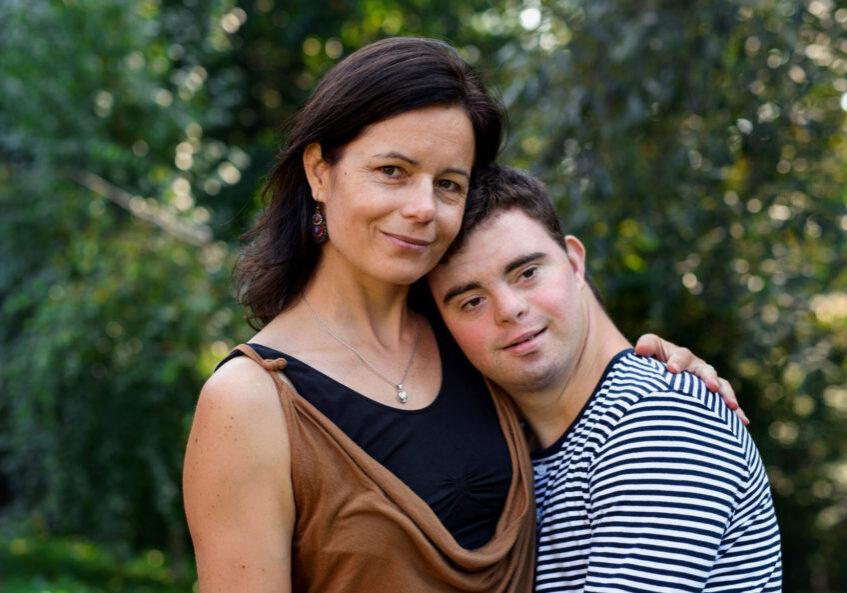
How to Talk to Young Kids About Disabilities and Differences
For many parents, the first time their child asks about or points out a person with a disability in public is an awkward experience. Even if the child already has […]
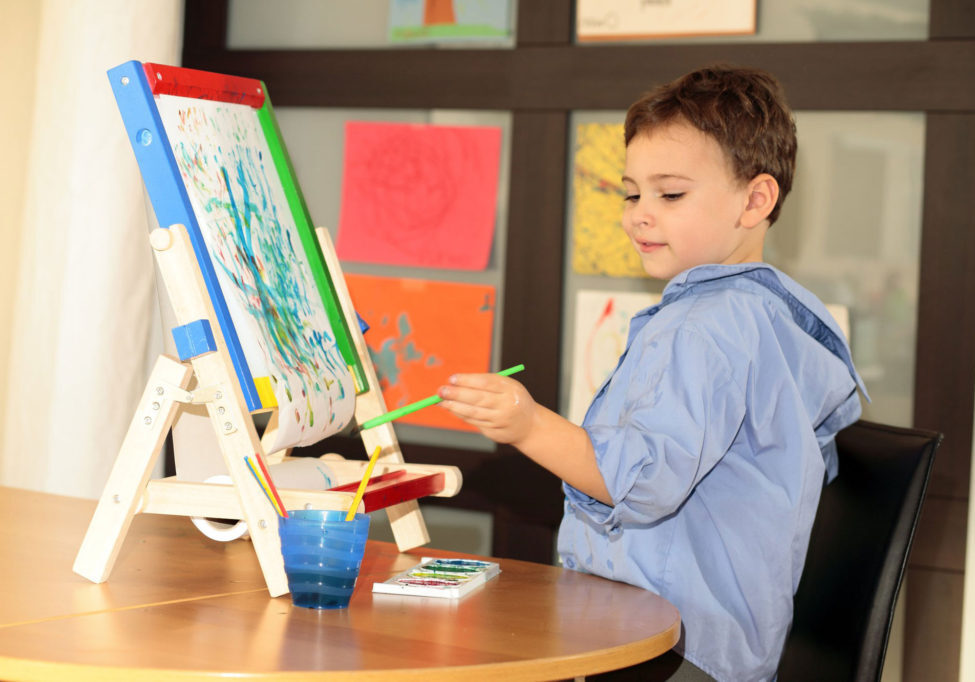
Art Therapy – A Healthy, Creative Outlet for Kids with Special Needs
Art has been used for decades as an outlet to provide relief from stress and anxiety for people of all ages and abilities. It has also been shown to improve […]
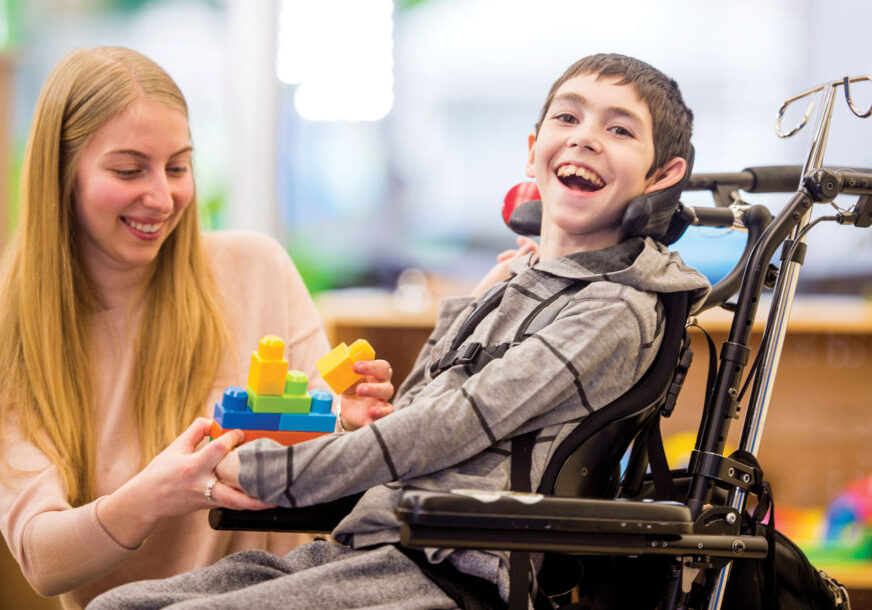
Dealing with Unsolicited Advice When Raising Kids with Disabilities
If you’re a parent, chances are you’ve gotten unsolicited advice from family, friends, and even strangers. If you’re raising a child with special needs, you’ve probably had people chime in […]
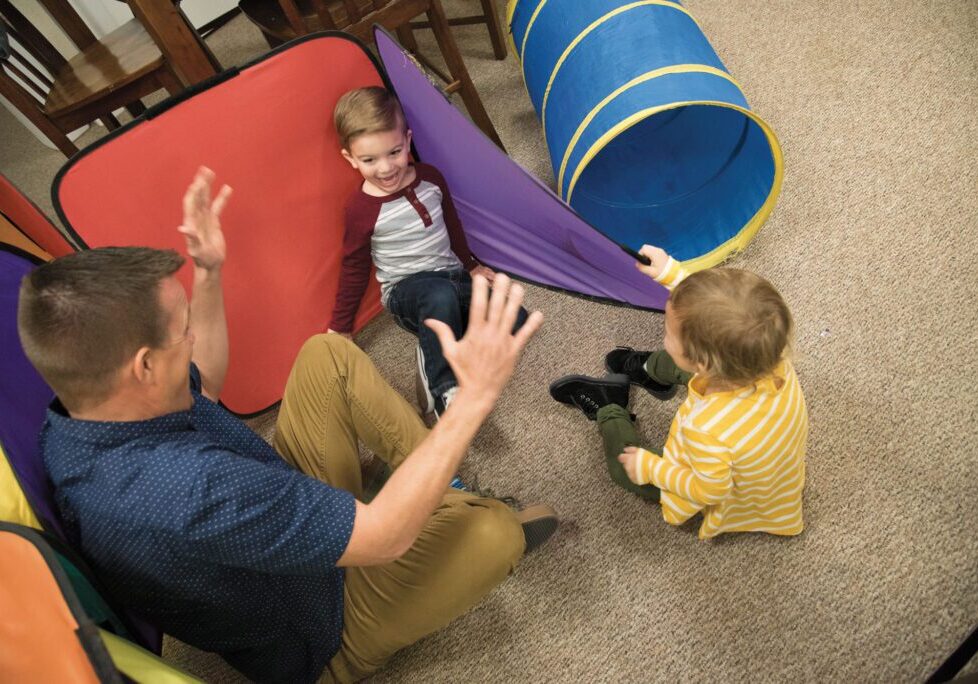
Parent Infant Programs – Early Developmental Intervention for North State Families
Being a parent is a wonderful and life-changing experience. It can also be extremely stressful and demanding, especially if your child is experiencing developmental challenges. It is natural for all […]


